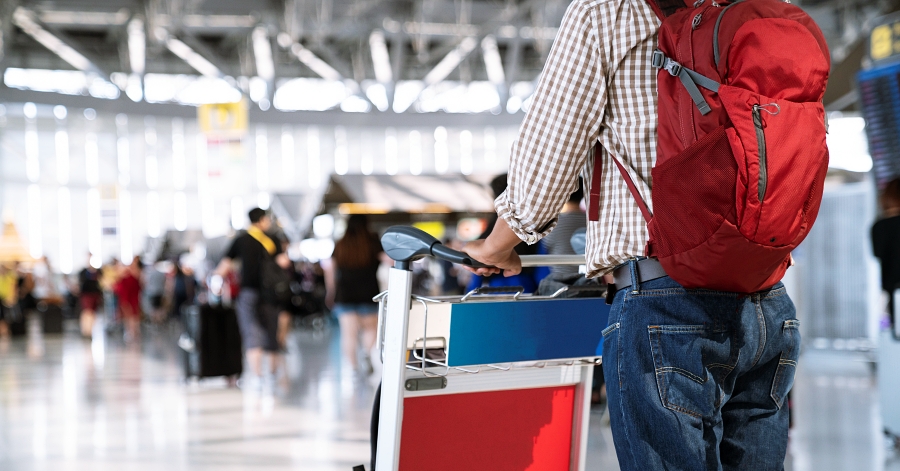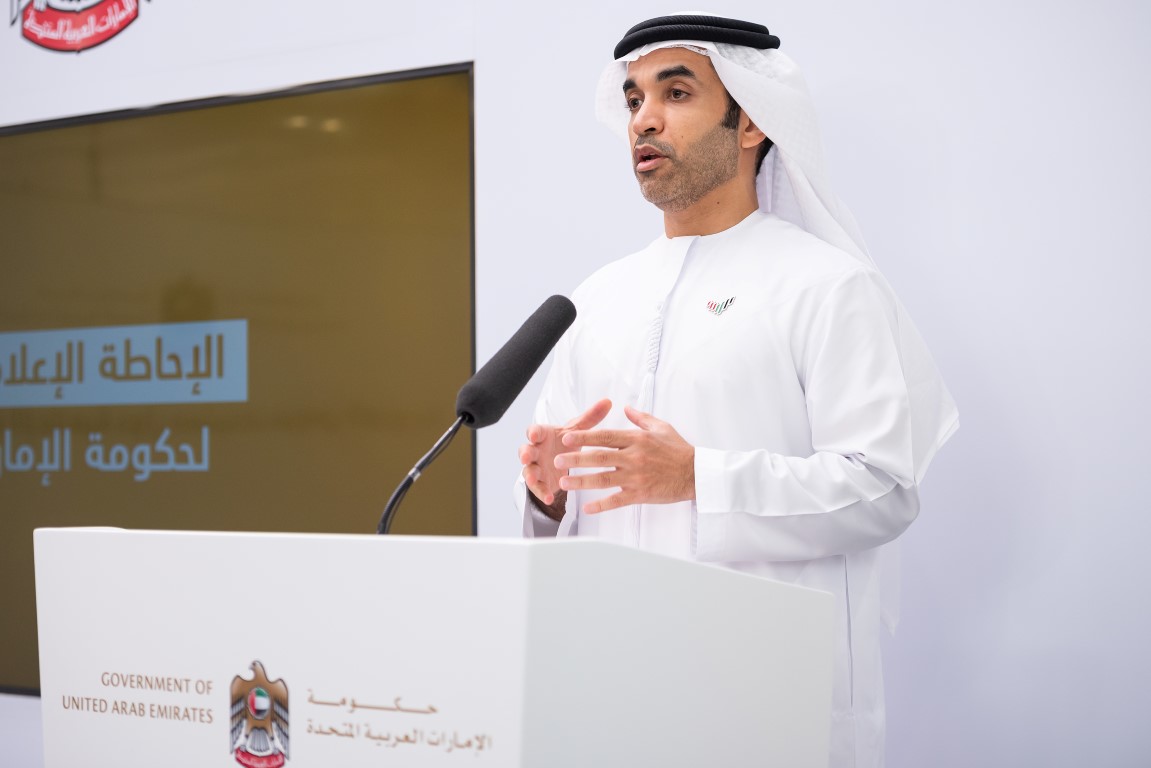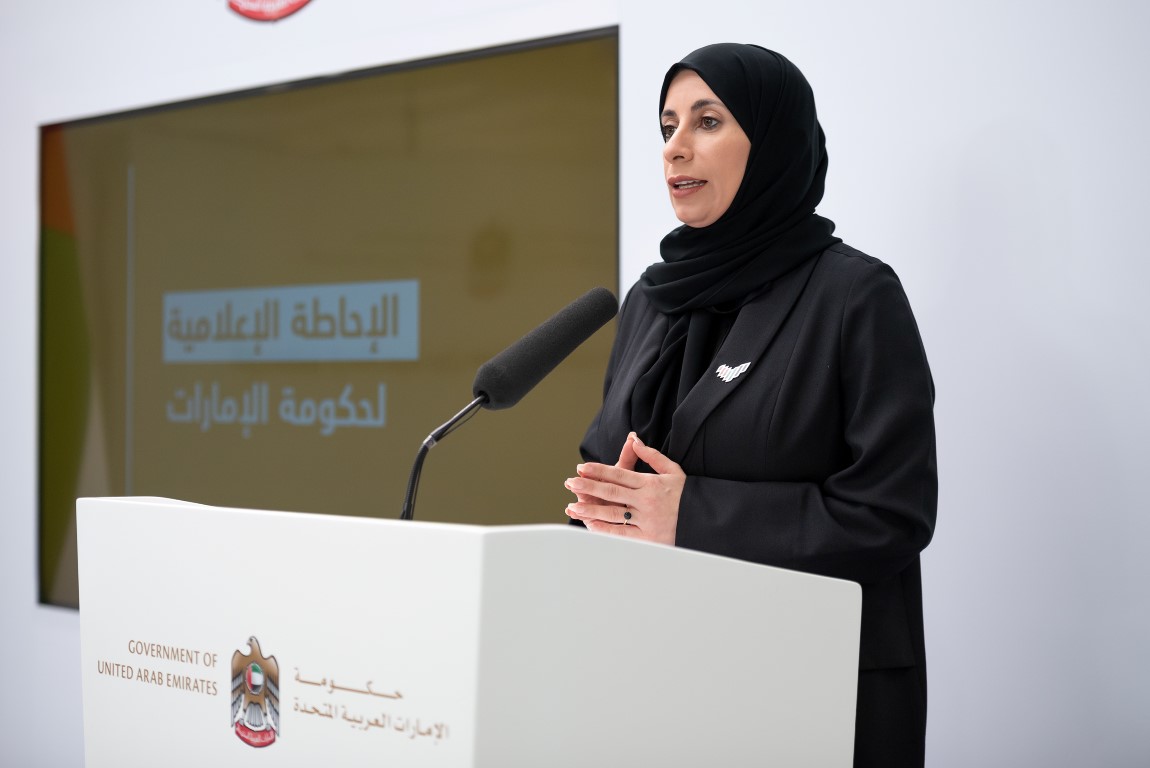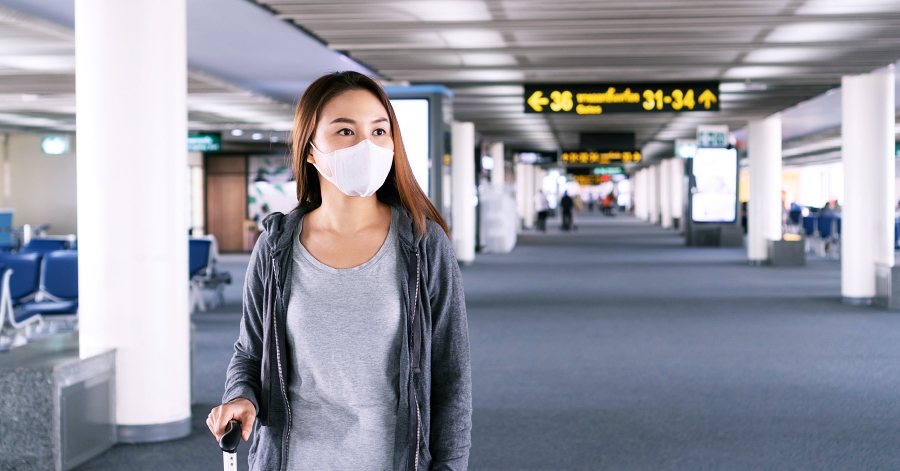The UAE health authorities led by the Ministry of Health and Prevention (MoHAP) has released a series of conditions and measures, regulating the travel of citizens and residents alike effective June 23.
In an online press briefing, Minister for Health and Prevention, Dr. Abdul Rahman bin Mohammad bin Nasser Al Owais, said: “The UAE, five months after the detection of the first Covid-19 case, has become an inspirational model to be followed for proactive measures and effective crisis management.”

UAE Sets Up New Travel Protocols Effective June 23
In line with this development, Dr. Saif Dhaheri, the Spokesperson for the National Emergency Crisis and Disaster Management Authority (NCEMA) announced a series of conditions and measures regulating the travel of citizens and residents effective June 23rd, as shared in a report by WAM.
Dr. Dhaheri explained: “Travel will be allowed to certain destinations according to a strategy that has classified all countries of the world into three categories: the first is classified as low-risk nations to which all citizens and residents are allowed to travel. The second is medium-risk nations to which only a limited category of citizens are allowed to travel to in case of emergency, namely for necessary medical reasons, visiting first-degree family members, or for military, diplomatic and official missions. The third is high-risk countries to which travel is categorically banned.”

He added that a travel protocol will be enforced under the current circumstances which will rely on several views, namely public health, medical tests, prior travel registration, quarantine, self-follow-up of traveler’s health status, and awareness of the precautionary measures.
Accordingly, there will be several mandatory prerequisites that any traveler has to abide by before departure, and upon return to the UAE which are:
1. All citizens and residents must apply for a travel request through the Federal Authority for Citizenship and Identity’s website and register in the Twajudi service before traveling.
2. All travelers must undergo a Covid-19 test before their trip as the health regulations in the country of destination may require a test result which dates back to no more than 48 hours before the travel date. The test result has to be displayed at the country’s airports via the Alhosn app. Only travelers who tested negative for the virus will be allowed to travel.
3. People aged over 70 years old will not be allowed to travel. People with chronic diseases are also advised not to travel for their safety.
4. International medical insurance covering the country of destination is a must-have for all travelers.
5. Everyone must comply with preventive measures at the airports, including wearing face masks, gloves, constant sanitization of hands, and maintaining a safe physical distance.
6. People with a temperature of 37.8 C or higher or those with respiratory disease symptoms will be isolated. Any person suspected to have contracted Covid-19 won’t be allowed to travel to ensure his and other’s safety.
7. Emirati and resident travelers must fill the required individual health accountability form, which includes an agreement to undergo quarantine upon return and not to go to destinations other than the ones applied to.
Moreover, these are the mandatory provisions to be adhered to upon arriving at the country of destination and before returning to the UAE:
1. If the traveler feels unwell or is experiencing symptoms related to any respiratory disease, they should visit the nearest health center and use their health insurance.
2. If travelers have tested positive for Covid19 in the country of destination, they should notify the UAE embassy at that destination, either through the Tawajudi Service or by contacting the embassy. The UAE mission will ensure that Covid-19 patients are taken care of and the UAE Ministry of Health and Prevention is notified.
3. All travelers must download and activate MoHAP’s ALHOSN app on their mobile phones.
4. Upon return, travelers must undergo a home quarantine for 14 days after the Covid-19 test, which could decrease to seven days for travelers arriving from countries with lower risk or for professionals in critical sectors.
5. Those who exhibit symptoms must commit to undergoing Covid-19 tests in an accredited medical facility within 48 hours of entering the country.
6. If home quarantine is not possible, the traveler must commit to self-quarantine in a facility or a hotel and pay all expenses.
Special provisions also apply for those on study scholarships, those on medical treatment trips, members of the diplomatic missions, and those on business trips, whether from public or private sectors. They should coordinate with the respective authorities.
Dr. Dhaheri emphasized that the procedures will be updated regularly, based on new developments and the health situation on the ground.

Meanwhile, Dr. Farida Al Hosani, the official spokesperson for the UAE health sector, addressed the new developments arising from easing precautionary measures and re-opening businesses and activities in most of the sectors.
Under these developments, Dr. Farida explained that people are required to adopt a new lifestyle, based on four principles:
1. Remain vigilant and continue the prevention of contracting Covid-19 by ensuring that all precautionary measures are taken.
2. Boost the body and immune system by eating healthy food and exercising regularly.
3. Raise health awareness and continuously follow the preventive measures and advice by relevant health authorities.
4. Ensure that people with underlying chronic diseases, like diabetes, or cardiovascular and respiratory diseases go for regular medical checks.
Although the UAE has shown marked improvement in terms of recoveries and the drop in cases of infections and deaths, the situation remains very serious and requires utmost care and vigilance so as not to cause another major wave of infections or a spike in new cases. There are several ways residents can ensure that the situation does not get worse as the UAE economy slowly opens and gets back on track.
By remaining informed of the current updates and applying the tips shared by the Ministry of Health and Prevention, residents can all do their part in protecting themselves as well as others in the community.
To get real-time updates from the UAE’s Ministry of Health and Prevention (MOHAP), you may follow them via their social media pages on Twitter, Facebook, and Instagram.
ALSO READ: Dubai eases restrictions for elderly and children under 12 starting June 18
